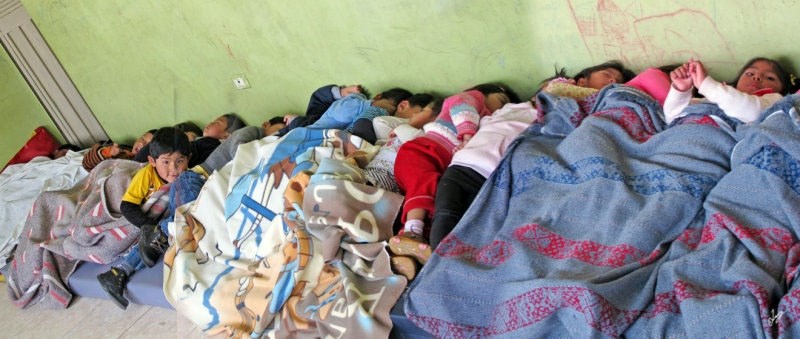When Marcia Tait travels to Peru, she does it for work and for work experience.
The local social work instructor with NorQuest College regularly travels down to the South American country with a group of her students on a practicum work placement project. Standing Up for Peruvian Children (SUPC) is a non-profit society that she co-founded after her first trip to the southern city of Arequipa. It’s a city approximately the same size as Edmonton but with one colossal difference.
“I would say that at least one-third of them – more than 300,000 – live in poverty. Definitely the ones that we work with live in extreme poverty,” Tait explained, noting that perhaps 20,000 people migrate annually to the city from the outlying regions as they look for work. It’s a high-altitude desert so the families build homes out of either volcanic rock or cement blocks on Arequipa’s outskirts, close to the desert.
She describes their living situation as “extreme poverty.”
“Basically, there’s nothing there until they start building. They live in a room probably 10-feet by 10-feet and it’s often single mothers with children. If they’re lucky, they might have a hot plate to cook on. The toilet is a hole in the ground. If they’re lucky, it’s covered with a tarp.”
Those one-room homes usually don’t have any electricity or running water either. While they are lacking for many amenities, there is one thing that is rarely in short supply.
“For such extreme poverty, the people are generally happy. They’re very spiritual.”
Looking at the pictures on www.supcsociety.com, one finds many photos of kids happily engaged in crafts or other activities at Lacuna or IRID. Their surroundings might be dismal but it is easy to see the joy in their faces.
And that’s why Tait takes her students there. She sees so much possibility for positive change.
“The women… want very much a different life, a better life, for their children, which is why they go to so much effort to get them into Lacuna. It’s a very hard life. The families don’t have a lot.”
She said that she finds the people incredibly hard-working and resilient. “They’re very good at figuring out how to manage on what we would consider nothing.”
They’re also very, very grateful for the help that they do receive. She said that she considers these experiences to be as much for her benefit as for the Peruvians who she interacts with.
“There’s something about the people that touched my heart. I fell in love with the people, with the country and the culture, and with their spirit. I get back as much as I put in.”




